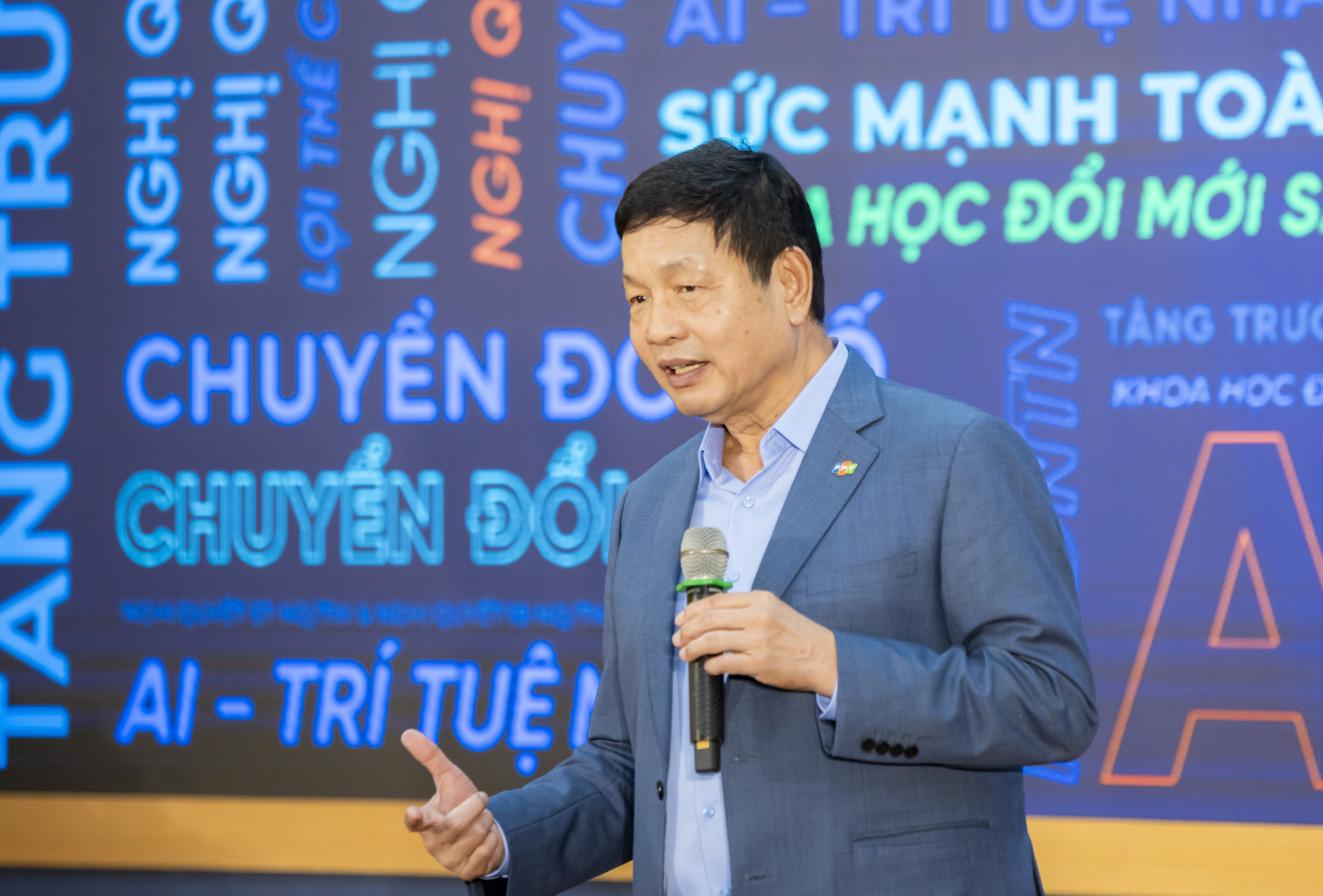
Speaking at the launch of the Strategic Human Resources Alliance for the implementation of Resolution 57 on May 7, Binh said he had been reflecting deeply on a point in Resolution 68-NQ/TW, recently signed by General Secretary To Lam: “Entrepreneurs are warriors on the economic front.”
Binh recalled a story from Vietnam’s wartime past. After the formation of the People’s Army of Vietnam, President Ho Chi Minh assigned General Vo Nguyen Giap the task of establishing a military academy - what would become Tran Quoc Tuan Military School. When asked what the school would teach, Ho Chi Minh replied, “Teach the history of the country.”
To Binh, this message remains deeply relevant: today’s citizens - and the students of tomorrow - must be instilled with patriotism, national pride, and a steadfast belief that Vietnam can become an advanced and prosperous nation.
“General Vo Nguyen Giap once said that if the past had Dien Bien Phu, today’s youth must forge new, glorious victories. To stand tall among global powers, we need a new kind of war - one fought and won with knowledge and technology,” Binh stressed.
Reaffirming what he called the “strategic quartet” under the guidance of the Prime Minister, Binh said this framework is crucial to laying a foundation for sustainable national development.
First, institutions must become competitive advantages, not bureaucratic bottlenecks.
Second, governance structures must be streamlined, efficient, and rooted in technological advancement.
Third, leaders must be the most talented individuals, dedicated to the people and the nation’s prosperity.
Fourth, technology must drive breakthrough differentiation - from planning and project design to implementation.
Building on this foundation, Binh argued that Vietnam must urgently develop a new generation of young people equipped with robust knowledge and skills in artificial intelligence (AI), leveraging the spirit of national unity that once fueled historic victories. From central to local levels, from government to youth, all must commit to innovation and contribution for the nation’s future.
“We need a generation of students fluent in technology and foreign languages, capable of collaborating with top global experts,” Binh affirmed.
He concluded: “Let us innovate together, train a new generation of human capital - so that while the world fears AI will replace jobs, Vietnam can rise to become a global workforce leader in AI and management. That is not only our mission and challenge but also our greatest opportunity.”
Also at the event, Le Thanh Tung, Board Member of VietinBank, praised Resolution 57 as timely and effective, providing strong momentum for society, especially in mobilizing resources for digital transformation.
He warned that amid intensifying global competition, failure to seize opportunities and adapt swiftly could lead not only to stagnation but also to obsolescence.
From an educational perspective, Le Truong Tung, Chairman of the Board at FPT University, noted that with rapid scientific and technological changes and a strong reformist spirit evident in recent Central Party Committee resolutions, the education sector must break away from models of the past.
He stressed that AI’s rapid development is fundamentally transforming how we learn, what we learn, and why we learn.
Without a profound overhaul in the education system - particularly in the implementation of Resolutions 68 and 59 - Vietnam’s youth will lack essential skills and risk being left behind in the new era.
Thai Khang